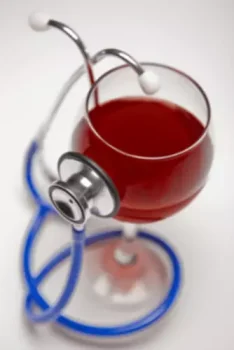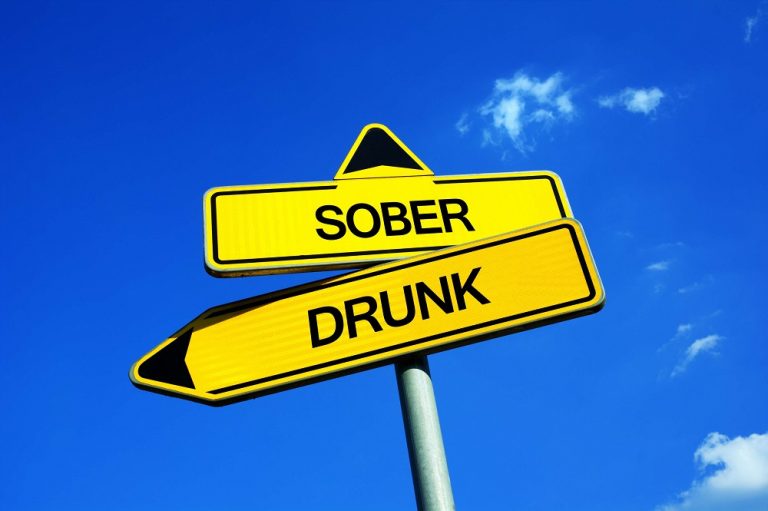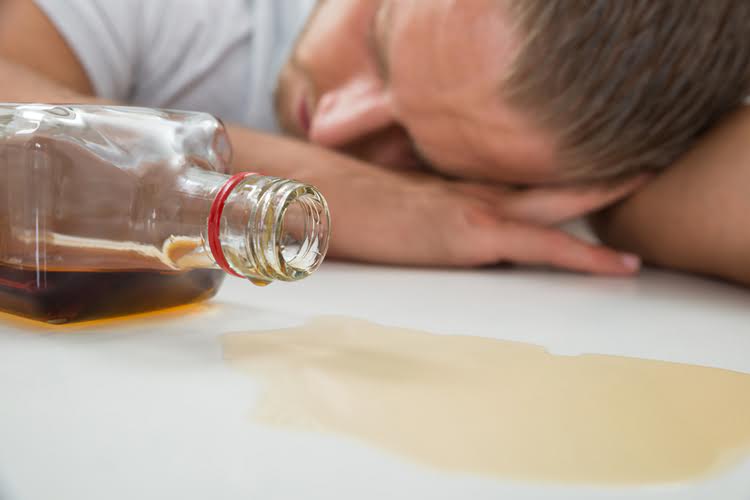
The defense mechanisms of the mucosal immune system are also affected, resulting in a dysfunction of the function of IgA and IgG immunoglobulins, which are responsible for local protection against infectious agents [64]. NIAAA Director, Dr. George Koob, discusses what we alcohol effects on eyes bloodshot puffy yellow eyes after drinking know about how alcohol affects our immune and stress systems, along with issues related to treatment access during the pandemic. The COVID-19 pandemic is affecting every family across the country and will likely have a long-lasting impact on public health and well-being.
Heart with artery view
Because of substantial and unexpected social and economic changes caused by the COVID-19 pandemic, many people turned to alcohol and other drugs to cope with those stressors. Unfortunately, the pandemic also made accessing substance use disorder treatment more difficult. This research suggests that these issues are reflected in deaths related to alcohol use. Future research can focus on addressing the mental health needs of people with alcoholism or substance use disorders and people prone to it, especially during very stressful events.
2. Characteristics of studies
Across substances, levels of COVID-19-related worry and fear were highest among those people who initiated substances during the COVID-19 pandemic compared to those who used substances prior and those who never used (Rogers et al., 2020). Likewise, anxiety about Covid was a reason for an increase in use in medical cannabis users (Boehnke et al., 2020). In the former study, participants without access to legal cannabis and those with fewer responsibilities were more likely to report decreased frequency of cannabis (Boehnke et al., 2020). The global SARS-CoV-2 (COVID-19) pandemic has had a substantial impact on the lives of people around the world including intensifying mental health difficulties (Czeisler et al., 2020).
How concerned should we be about people drinking to deal with the stress of the COVID-19 pandemic?
A systematic review of all available evidence was carried out to document and interpret the frequency and severity of alcohol and other substance use during the Covid-19 pandemic and their relationship to demographic and mental health variables that may suggest further clinical implications. Peer reviewed articles in MEDLINE, Embase, PsycINFO, CINAHL complete and Sociological Abstracts were searched from December 2019 until November 2020. “Alcohol has diverse adverse effects throughout the body, including on all cells of the immune system, that lead to increased risk of serious infections,” said Dr. E. Jennifer Edelman, a Yale Medicine addiction medicine specialist. With other disasters, we’ve seen that these spikes in drinking last 5 or 6 years and then alcohol consumption slowly returns to usual levels. We hope that the high rates of alcohol use and negative health effects will decline over time as we return to more typical interactions with each other. We spoke with George F. Koob, Ph.D., director of the National Institute on Alcohol Abuse and Alcoholism (NIAAA), to learn about the pandemic’s effects on alcohol use and related harms.

What about people with IBD?

This highlights the consequences of sudden and long-term lockdown on the ability of those dependent on substances to access these, and the potential consequences of withdrawal, both physically and psychologically. During the COVID-19 pandemic, many potential risk groups have been identified, such as those with obesity, diabetes, preexisting organ injuries, and several other conditions. Smoking is the most reported substance use disorder crack addiction linked to increased COVID-19 hospitalization rate and disease severity. In relation to smoking, we discuss the impairment of the innate and the adaptive immune systems as being among the main potential reasons for increased COVID-19 infection risk and severity. Chronic alcohol consumption and alcohol use disorder (AUD) also have a negative impact on the immune system, but when it comes to COVID-19 risk, they produce diverse outcomes.
1. Strengths and limitations of the study

Because drinking alcohol and being hungover can lead to digestive upset, headaches, mood changes, and difficulty thinking clearly — all symptoms of long COVID — it may worsen these symptoms. While hand sanitizer containing alcohol may kill the virus on surfaces, drinking alcohol doesn’t cure or prevent a COVID-19 infection. During an April 2020 media briefing, Trump did ask members of the government’s coronavirus task force to look into whether disinfectants could be injected inside people to treat COVID-19. But when a reporter asked in a follow-up question whether cleaning products like bleach and isopropyl alcohol would be injected into a person, the then-president said those products would be used for sterilizing an area, not for injections. We’re not in a crisis like the Covid-19 pandemic any longer, but we’re confronted with all of these other slower-moving disasters.
- Even when sodium levels are modestly affected, there can be significant consequences.
- One study found that people who got less than 7 hours of sleep were nearly three times more likely to develop a cold compared with those who got 8 or more hours of sleep.
- In the US, black patients made up a relatively larger proportion of opioid overdose visits during lockdown compared with the previous year (Ochalek et al., 2020).
- In these critical circumstances, it is essential that everyone is informed about other health risks and hazards so that they can stay safe and healthy.
Several clinical factors have been demonstrated as risk factors of COVID‐19 severity and death [1, 2]. Among modifiable health risk factors, smoking has been given special attention along with clinical factors. A systematic review conducted recently has already identified five studies exploring the effects of smoking on severity of COVID‐19 [3].
This can cause heart cells to mishandle calcium and misfire, resulting in the heart beating too fast or irregularly. The new study suggests, for the first time, that the molecule Alda-1 may prevent the activation of JNK2 that leads to AFib. Five studies (11.1%) identified drug/ substance using longer questionnaires/instruments (seeTable 4). Twelve quantitative studies (26.7%) asked shorter or individual questions about self-reported frequency or behavioural changes of substance (e.g., Ballivian et al., 2020) and if any change was functionally related to the pandemic or any other reason (i.e., through stress; Czeisler et al., 2020). The remaining six studies (11.3%) used existing data and performed a time-series analysis linked to substance use (Glober et al., 2020, Leichtle et al., 2020, Marais et al., 2020, Ochalek et al., 2020, Slavova et al., 2020, Wainwright et al., 2020). Please note the terminology to denote the time-period of the review changes from phrases such ‘pandemic’, ‘lockdown’, ‘social-distancing’ or ‘quarantine’ depending on the terminology used within the respective study being described.
Rachael Mason, Aloysius Niroshan Siriwardena, Todd Hogue, Gregory Adam Whitley & Graham R. Law contributed to the data analyses and manuscript drafting. AR and JR contributed to the study selection, data extraction, data analyses, and manuscript drafting. RM, ANS, TH, GAW & GRL contributed to the data analyses and manuscript drafting. “If there are actual lab abnormalities, it’s a sign that you need to take a break,” Bonthala says. It makes sense that red wine would be the best choice since it’s rich in phenols, which are known to have anti-inflammatory properties, Gutierrez says. Even among those who stick to the alcohol guidelines, some will have digestive problems, such as changes in bowel habits and worsening acid reflux, says Dr. Reezwana Chowdhury, an assistant professor of medicine and an IBD specialist at the Johns Hopkins University School of Medicine.
Instead, take steps to lower cholesterol, control high blood pressure, manage weight, get enough physical activity, get plenty of sleep, stay away from tobacco and follow a healthy diet, as detailed in the Association’s Life’s Essential 8 recommendations. One study reported a statistically significant role of the level of ethnicity in increasing alcohol use during lockdown. In a US sample who had consumed alcohol on more than one occasion per month in the past year, non-white participants seemed to be at higher risk for higher drinking levels, riskier drinking patterns, and greater affective distress, when compared to white participants (McPhee et al., 2020). The review included studies that consider both general and clinical populations of human participants (any gender and age range) and included experimental studies, control trials, cohort studies, case series reports, and qualitative studies.
Some evidence suggests that post-COVID-19 fatigue syndrome may share characteristics with ME/CFS, a condition where approximately 4 out of 5 people exhibit alcohol intolerance. According to several anecdotal reports, alcohol intolerance, which is characterized by reactions like nausea, low blood pressure, fatigue, and dizziness when consuming alcohol, may be a unique symptom of long COVID. “Those at increased risk should cut down or abstain from alcohol because every little thing an individual can do to improve the health and reduce risk is worth it at this point, even if the evidence is not entirely clear,” Mroszczyk-McDonald said. For those who have a risk factor for COVID-19, like heart disease or diabetes, he recommends drinking even less. Past data shows binge drinking can have a massive effect on the immune system.
No research suggests that you’ll develop long COVID if you drink alcohol while you have a COVID-19 infection. If you’re ready to enter treatment and stop drinking, you’ll likely have to wait until your COVID-19 infection is no longer transmissible before you enter a detox program. Alcohol can also weaken your immune system and contribute to risk-taking behavior (like not wearing a mask) that could increase your chances of contracting the virus.
The proportion of people consuming other substances during the pandemic ranged from 3.6% to 17.5% in the general population. Mental health factors were the most common correlates or triggers for increased use of both alcohol and other substances. In the United Kingdom, a cross-sectional study performed on 691 adults, showed that 17 % of them reported increased alcohol consumption during the lockdown, with a higher proportion in younger subjects (18–34 years). There was a significant association between increased alcohol consumption and poor overall mental health, depressive symptoms, and lower mental wellbeing [38]. Therefore, consumption should be moderate in general, and especially during the pandemic [24]. In contrast, Nielsen IQ reported [25] a 477 % increase in online alcohol sales by end of April 2020.
Some studies provide evidence that chronic alcohol consumption and AUD increase the risk of COVID-19 infection and severe disease progression, while others report reduced hospitalization and death rates. In this review, we summarize the current state of epidemiological and molecular data concerning alcohol consumption and AUD as risk factors for COVID-19 infection, hospitalization, and mortality. One adderall xr amphetamine dextroamphetamine mixed salts perhaps surprising risk factor in the included studies was parental status (those with children were more likely to increase their alcohol use during the pandemic). During lockdown, many parents had to ‘home-school’ their children alongside continuing to work at home. Study authors suggest that this may have led to role overload and distress and consequently heavier drinking (Sallie et al., 2020).
Alcohol adversely affects people around the world on a large scale even in nonpandemic times, with about 3 million deaths attributed to alcohol use each year (Shield et al., 2020). Although sales bans, especially total bans, can be problematic, they do follow the public health rationale and the existing evidence that reducing the availability of retail alcohol will result in less consumption and, therefore, less alcohol‐related harm (Chisholm et al., 2018). Declaring beverage alcohol to be an “essential good” during a pandemic, therefore, seems to run counter to this and might signal the close relationship and influence that the alcohol industry may have on policy decision‐makers (Hamilton, 2020). However, there is one scenario in which alcohol could be considered essential during the COVID‐19 pandemic, namely the diversion of beverage alcohol to be used as a disinfectant in response to the increased demand for such products (e.g., hand sanitizers and household cleaning agents).
In times like these, our bodies need to function at their highest levels in order to fight off the symptoms of this virus and decrease the potential harm of COVID-19. Although you may be tempted to quit alcohol use altogether until a vaccine for the coronavirus arrives, if you’ve developed a physical dependence on it, you may face serious or life-threatening symptoms of alcohol withdrawal. Regardless of the amount of alcohol a person consumes though, since alcohol consumption can weaken our immune systems over time, any person with problematic drinking behaviors can be amongst the most vulnerable populations for getting COVID-19.
He often appeared on public service announcements in a white lab coat emblazoned with“N-Y-C” in big, bold letters, urging urbanites to mask up, get tested, and get vaccinated. Dehydration occurs when the body loses too much water that it needs to function normally. One of the main reasons for this is not drinking enough water or not replenishing water lost to sweat, excessive urination, vomiting, or diarrhea.
Among substance users, there were increases in specific drugs including 27.3% cannabis, 16.7% Ritalin or similar substance, 18.2% pain relievers, and 23.5% sedatives (Gritsenko et al., 2020). Three studies exclusively reported a decrease in alcohol use because of the pandemic (López-Bueno et al., 2020, Đogaš et al., 2020, Wang et al., 2020). A further three studies from Canada and USA reported that the overall percentage who used alcohol did not change dramatically from pre-COVID to post-COVID (Dumas et al., 2020, McPhee et al., 2020, Wardell et al., 2020). While it is too soon to definitively know the effects of the pandemic on drinking patterns or how alcohol consumption impacts COVID-19, Yale Medicine experts say there are logical concerns based on what has already been proven about how alcohol changes the human body. Alcohol abuse can also lead to various issues with your cardiopulmonary system (i.e., heart and lungs).
Two studies reported a statistically significant role of ethnicity in increasing drug use during lockdown. In the US, black patients made up a relatively larger proportion of opioid overdose visits during lockdown compared with the previous year (Ochalek et al., 2020). Likewise, those of Hispanic (21.9%) or Black (18.4%) ethnicity had 3.33 times the odds of increased substance use, according to Czeisler et al. (2020). Although evidence would suggest substance and alcohol use may change during this pandemic and this may result in hazardous or harmful use which may result in requiring emergency health care treatment, there has been no full review or synthesis of the evidence around this. In line with this, we present a systematic review of all available evidence to document and interpret the frequency and severity of alcohol and other substance use during the Covid-19 pandemic and their relationship to demographic and mental health variables that may suggest further clinical implications.













